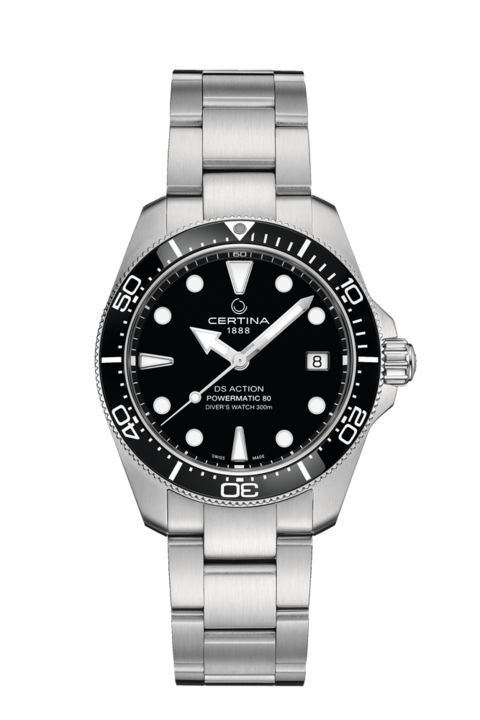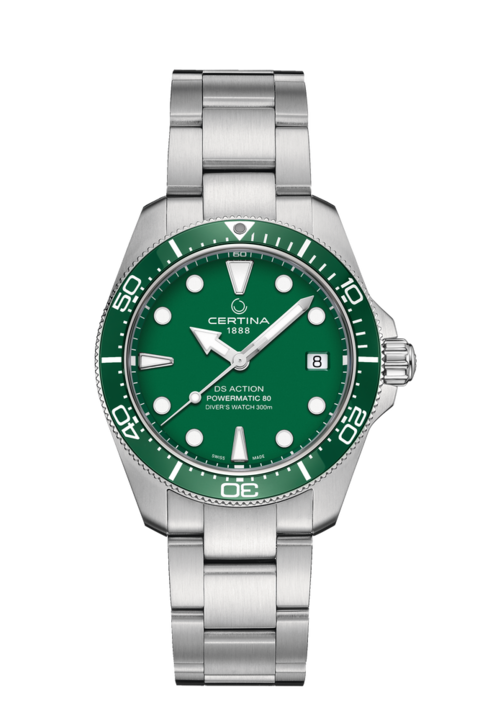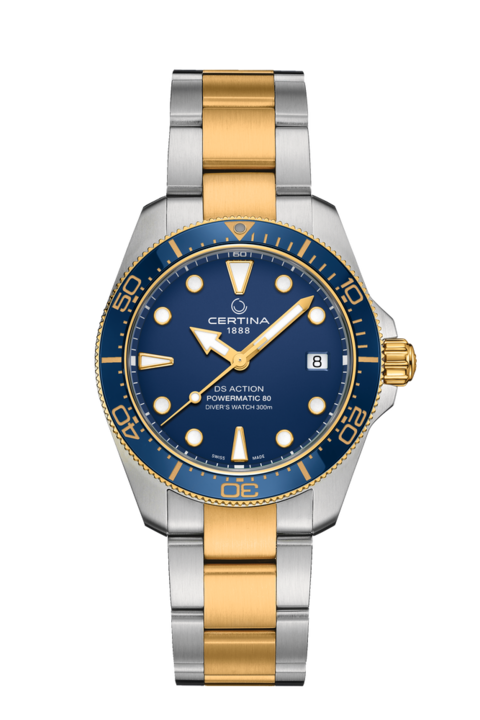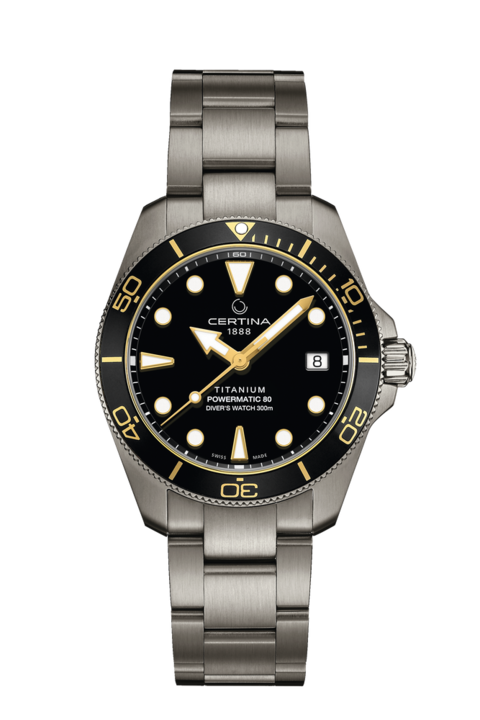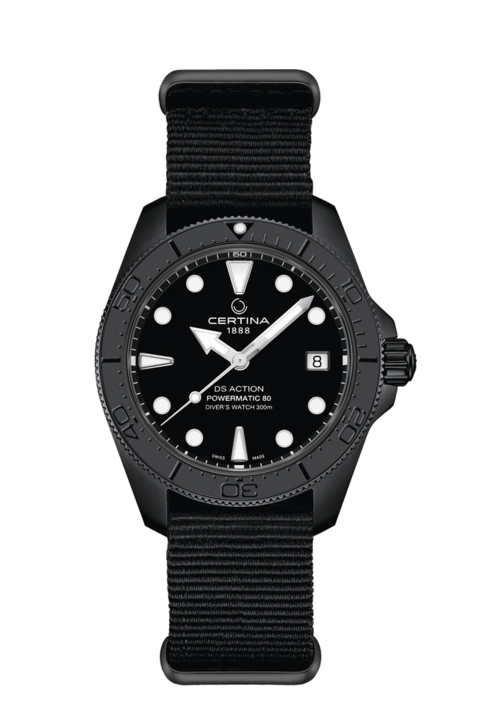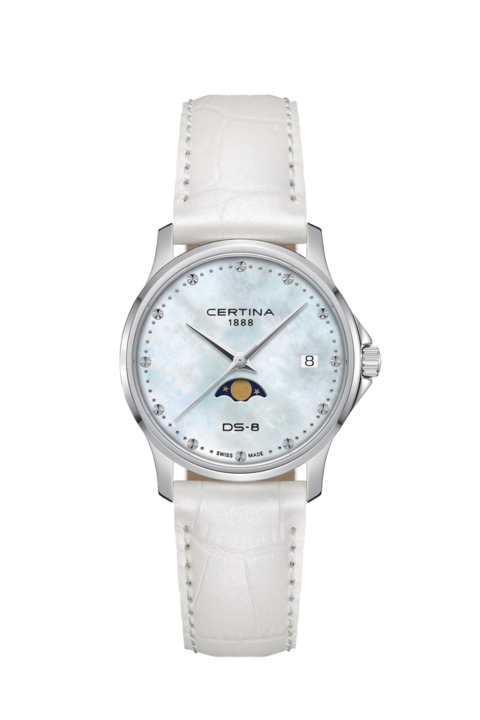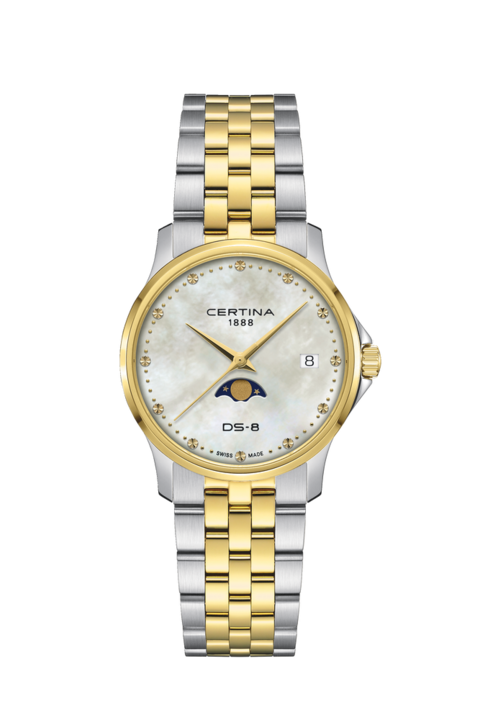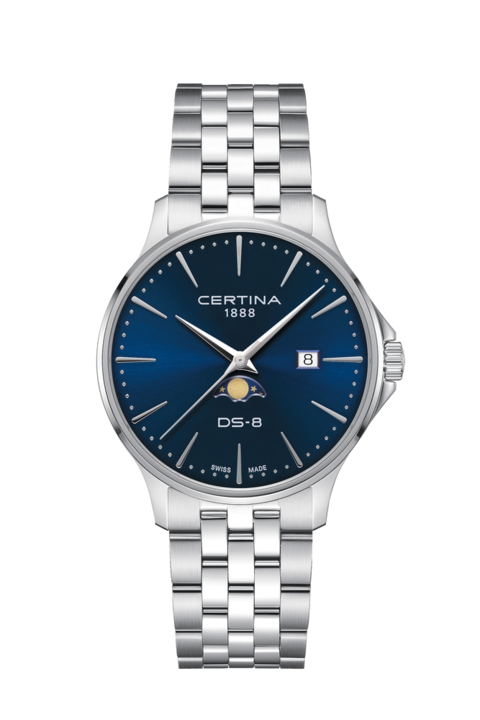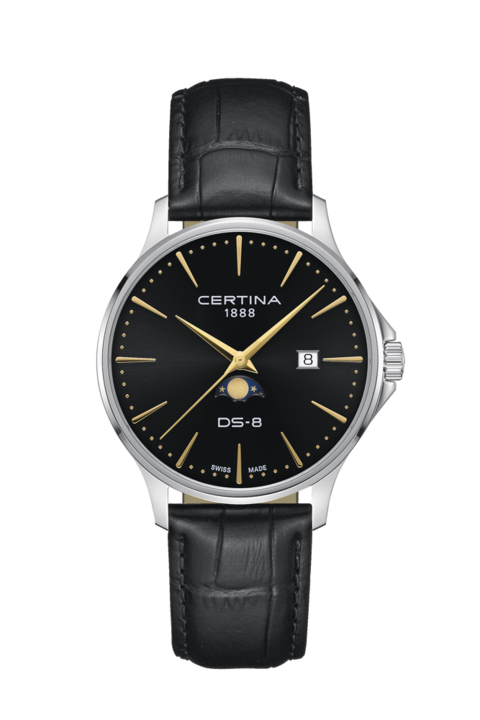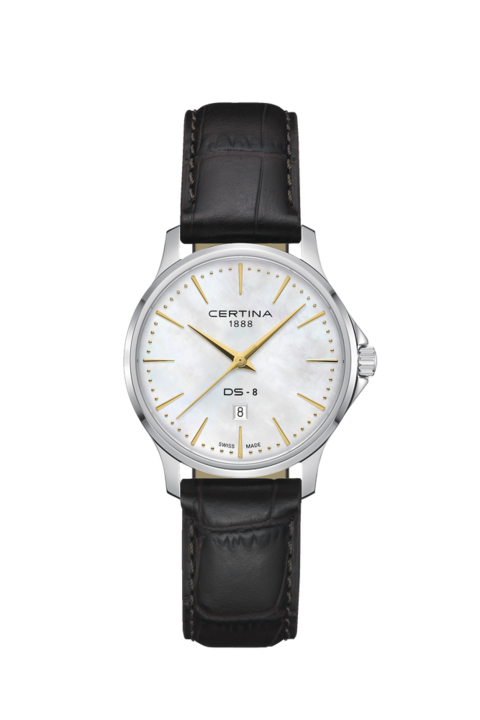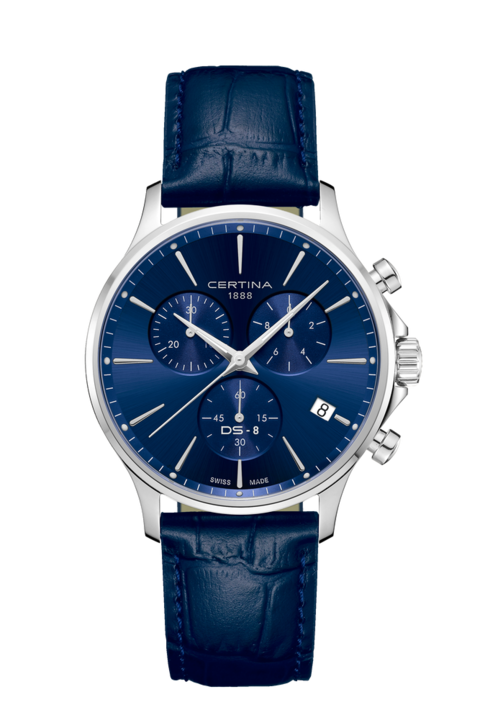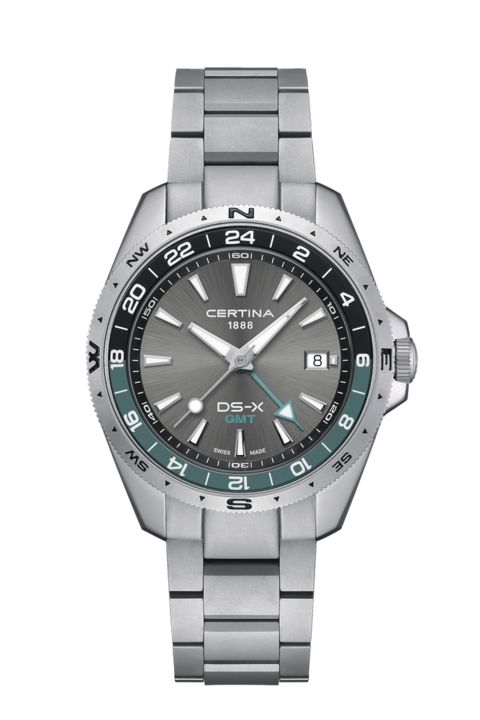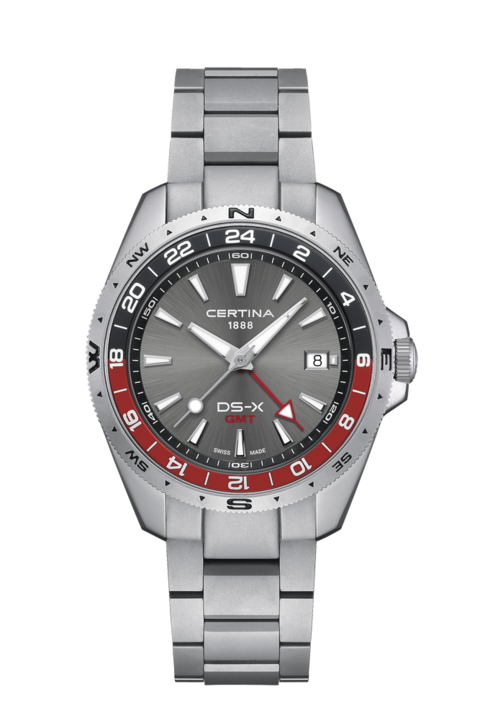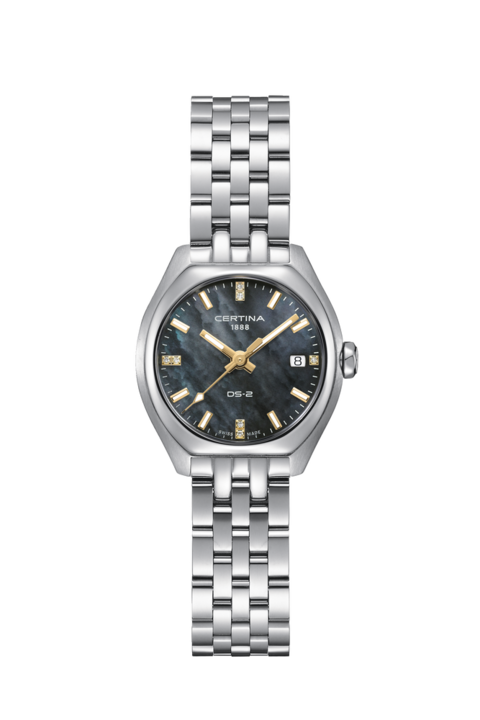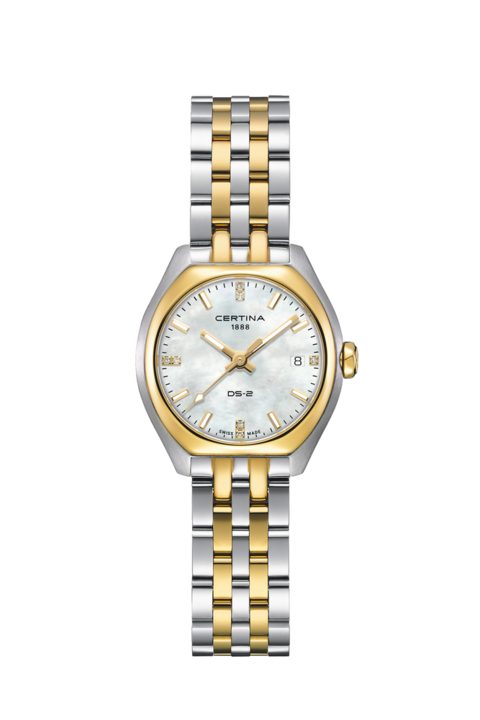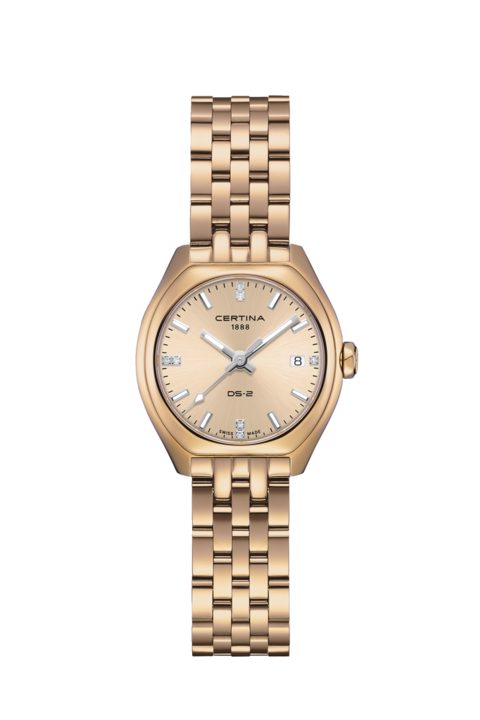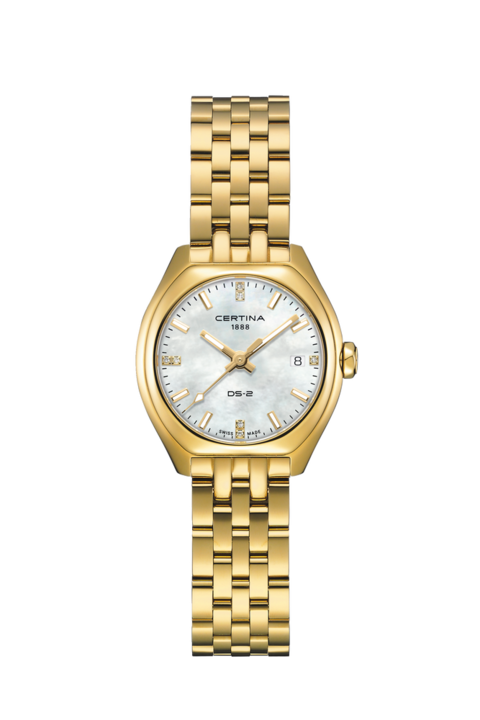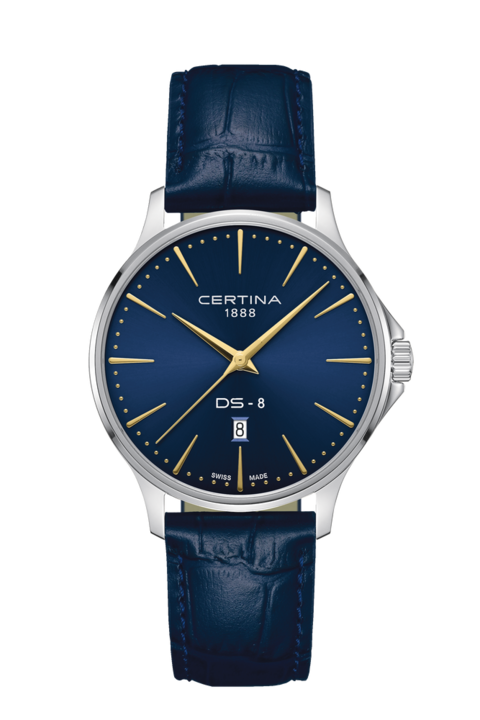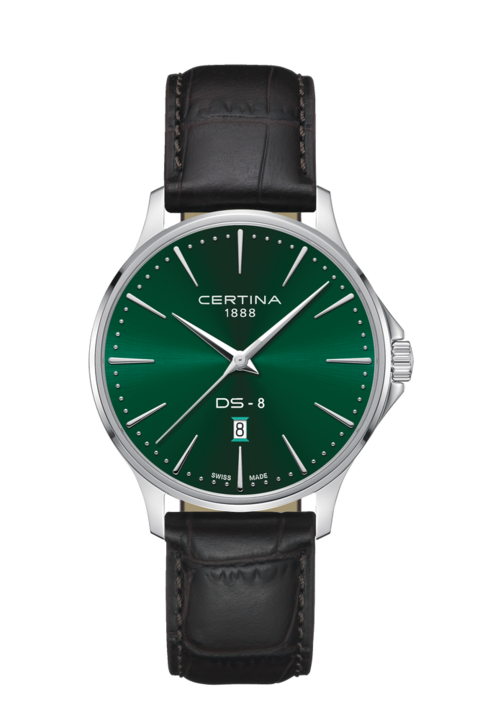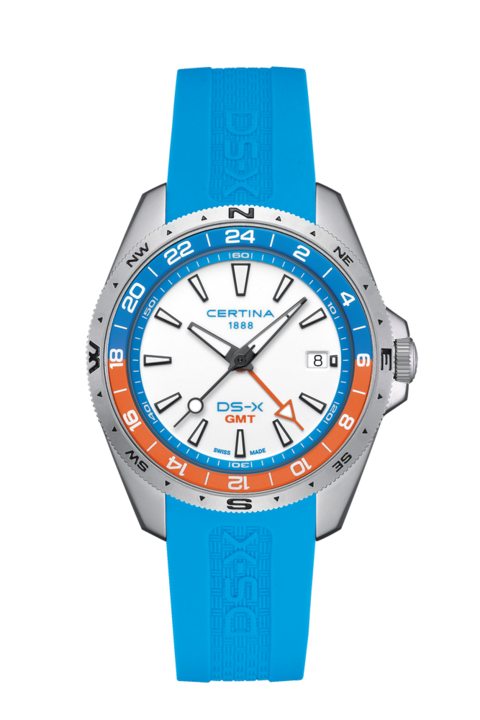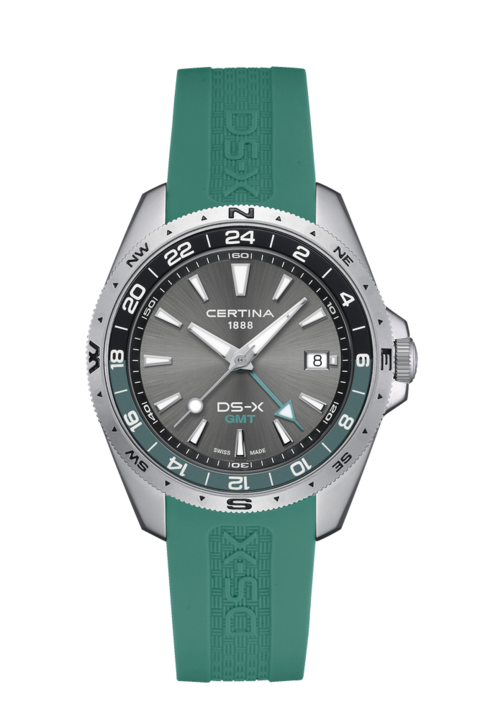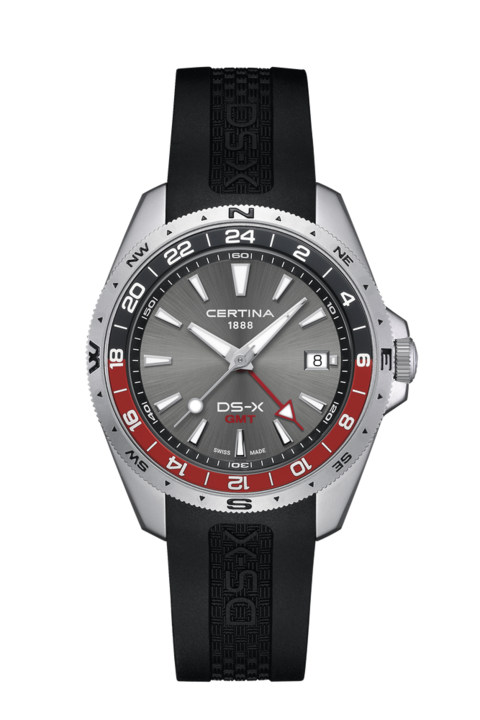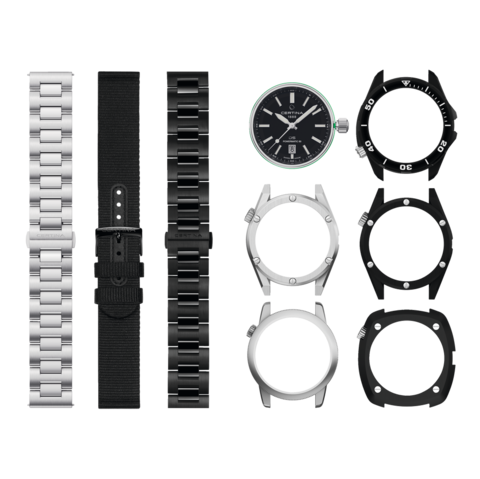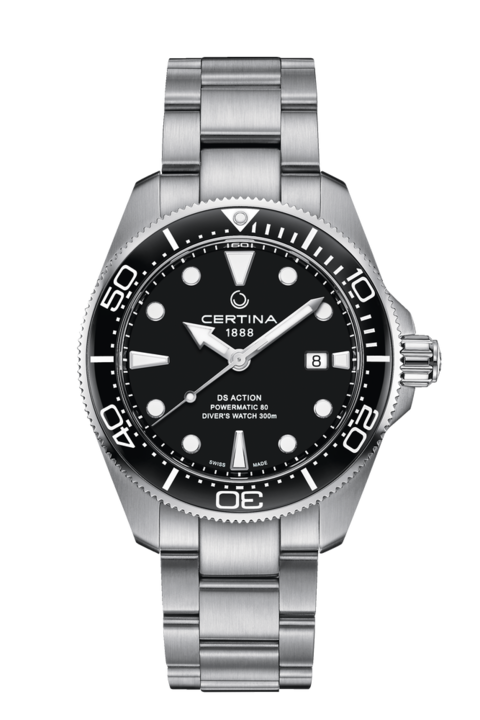222 watches found
 DS Action Diver 38mm Powermatic 80
DS Action Diver 38mm Powermatic 80Men watch ∙ Automatic ∙ Black ∙ 316L stainless steel
GBP 765.-New DS Action Diver 38mm Powermatic 80
DS Action Diver 38mm Powermatic 80Men watch ∙ Automatic ∙ Green ∙ 316L stainless steel
GBP 765.-New DS Action Diver 38mm Powermatic 80
DS Action Diver 38mm Powermatic 80Men watch ∙ Automatic ∙ Blue ∙ 316L stainless steel ∙ PVD coating
GBP 820.-New DS Action Diver 38mm Powermatic 80
DS Action Diver 38mm Powermatic 80Men watch ∙ Automatic ∙ Black ∙ Titanium
GBP 900.-New DS Action Diver 38mm Powermatic 80
DS Action Diver 38mm Powermatic 80Men watch ∙ Automatic ∙ Black ∙ 316L stainless steel ∙ PVD coating
GBP 740.-New DS-8 Moonphase Lady
DS-8 Moonphase LadyWomen watch ∙ Quartz ∙ Mother of pearl ∙ 316L stainless steel
GBP 350.-New DS-8 Moonphase Lady
DS-8 Moonphase LadyWomen watch ∙ Quartz ∙ Mother of pearl ∙ PVD coating ∙ 316L stainless steel
GBP 460.-New DS-8 Moonphase Gent
DS-8 Moonphase GentMen watch ∙ Quartz ∙ Blue ∙ 316L stainless steel
GBP 420.-New DS-8 Moonphase Gent
DS-8 Moonphase GentMen watch ∙ Quartz ∙ Black ∙ 316L stainless steel
GBP 360.-New DS-8 Lady 31mm
DS-8 Lady 31mmWomen watch ∙ Quartz ∙ Mother of pearl ∙ 316L stainless steel
GBP 315.-New DS-8 Chrono
DS-8 ChronoMen watch ∙ Quartz ∙ Blue ∙ 316L stainless steel
GBP 440.-New DS-X GMT
DS-X GMTMen watch ∙ Quartz ∙ Grey ∙ 316L stainless steel
GBP 500.-New DS-X GMT
DS-X GMTMen watch ∙ Quartz ∙ Grey ∙ 316L stainless steel
GBP 500.-New DS-2 Lady
DS-2 LadyWomen watch ∙ Quartz ∙ Mother of pearl ∙ 316L stainless steel
GBP 390.-New DS-2 Lady
DS-2 LadyWomen watch ∙ Quartz ∙ Mother of pearl ∙ PVD coating ∙ 316L stainless steel
GBP 420.-New DS-2 Lady
DS-2 LadyWomen watch ∙ Quartz ∙ Champagne/Golden ∙ PVD coating ∙ 316L stainless steel
GBP 440.-New DS-2 Lady
DS-2 LadyWomen watch ∙ Quartz ∙ Mother of pearl ∙ PVD coating ∙ 316L stainless steel
GBP 440.-New DS-8 Gent 40mm
DS-8 Gent 40mmMen watch ∙ Quartz ∙ Blue ∙ 316L stainless steel
GBP 325.-New DS-8 Gent 40mm
DS-8 Gent 40mmMen watch ∙ Quartz ∙ Green ∙ 316L stainless steel
GBP 325.-New DS-X GMTIconic
DS-X GMTIconicMen watch ∙ Quartz ∙ White ∙ 316L stainless steel
GBP 480.-New DS-X GMT
DS-X GMTMen watch ∙ Quartz ∙ Grey ∙ 316L stainless steel
GBP 480.-New DS-X GMT
DS-X GMTMen watch ∙ Quartz ∙ Grey ∙ 316L stainless steel
GBP 480.-New DS+ Kit Black EditionIconic
DS+ Kit Black EditionIconicMen watch ∙ Automatic ∙ Black ∙ PVD coating ∙ 316L stainless steel
GBP 1 180.-New DS Action Diver 43mm Powermatic 80
DS Action Diver 43mm Powermatic 80Men watch ∙ Automatic ∙ Black ∙ 316L stainless steel
GBP 895.-
NoveltiesIconicSpecial and limited editionsMen’s automatic watches: The Certina selectionAutomatic watches for women: The Certina selectionMen’s quartz watches: The Certina selectionQuartz watches for women: The Certina selection316L stainless steel watch for men316L stainless steel watch for womenGold watches for men: The Certina selectionGold watches for women: The Certina selectionPVD coating watch for menPVD coating watch for womenCeramic watches for men: The Certina selectionCeramic watches for women: The Certina selectionTitanium watches for men: The Certina selectionTitanium watches for women: The Certina selectionBlack watches for men: The Certina selectionBlack watches for women: The Certina selectionWhite watches for men: The Certina selectionWhite watches for women: The Certina selectionGreen watches for men: The Certina selectionGreen watches for women: The Certina selectionBlue watches for men: The Certina selectionBlue watches for women: The Certina selectionSilver watches for men: The Certina selectionSilver watches for women: The Certina selectionGrey watches for men: The Certina selectionGrey watches for women: The Certina selectionMother of pearl watch for menMother-of-Pearl Watches for Women: The Certina SelectionBrown watches for men: the Certina selectionBrown watches for women: The Certina selectionMen’s watches with a leather strap: The Certina selectionWomen’s watch with a leather strap: The Certina selectionRubber watch for menRubber watch for womenChronograph watches for men: The Certina selectionChronograph watches for women: The Certina selectionMilanese mesh watch for menMilanese mesh watch for womenTachymeter Watches for Men: The Certina SelectionTachymeter watch for womenMoonphase watches for men: The Certina selectionMoon phase watch for womenDiver's Watches for Men: The Certina SelectionDiver's Watches for Women: The Certina SelectionRed watches for men: The Certina selectionOrange watches for men: The Certina selectionPink watches for women: The Certina selectionWater-resistant watches for men: The Certina selectionWater-resistant watches for women: The Certina selectionChronometer watches for men: The Certina selectionChronometer watches for women: The Certina selectionCustomisable watches: DS+Women’s watches: The Certina selection Men’s watches: The Certina selectionSmall WatchMedium WatchLarge WatchStainless Strap WatchTitanium Strap WatchRubber WatchLeather Strap WatchSynthetic Strap WatchNato Strap WatchPvd Coating Strap WatchMilanese Mesh WatchQuick Release System WatchGold WatchPvd Coating WatchSteel WatchTitanium WatchCeramic WatchBlack WatchBrown WatchSilver WatchGrey WatchBlue WatchMother Of Pearl WatchWhite WatchRed WatchGreen WatchLight Blue WatchOrange WatchDiamond WatchChronometer WatchNivachron WatchSilicon WatchQuartz WatchAutomatic WatchLimited Edition Watch
